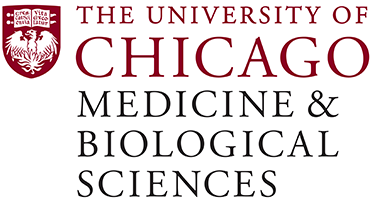Tempus, a technology company focused on helping doctors personalize cancer care by collecting, sorting and analyzing clinical and molecular data, and pancreatic cancer specialists at the University of Chicago Medicine, announce a new collaboration aimed at accelerating the pace of discovery and, over time, improving treatment of pancreatic cancer.
Pancreatic cancer is the third leading cause of cancer-related death in the United States. It has a five-year survival rate of just nine percent. Lack of effective treatments and early detection methods contribute to this grim prognosis. Personalized approaches to match a patient’s genomic information to therapies have led to improvements in treatment of other cancer types. None of the genetic mutations commonly seen in pancreatic cancer, however, have “druggable” targets.
As part of the research collaboration, Tempus will work directly with a team of researchers and clinicians from the Chicago Pancreatic Cancer Initiative (CPCI), led by Ralph Weichselbaum, MD, professor and chairman of the Department of Radiation Oncology at the University of Chicago. The CPCI has collected genomic data, biospecimens and clinical information from more than 300 patients with pancreatic cancer. Tempus will compile this data with their existing robust database to apply machine learning and advanced bioinformatics to analyze them. Tempus will also produce additional genomic data using their platform.
The goal is to help cancer specialists and research teams uncover novel patterns in clinical and molecular data, in order to better predict how patients will respond to treatment.
“The University of Chicago and Tempus share a commitment to accelerate pancreatic cancer research and identify treatments that can improve the lives of those diagnosed,” said Weichselbaum. “We are optimistic that this collaboration can make a difference in the lives of those diagnosed and treated for pancreatic cancer.”
“A tremendous amount of work and effort across hospital systems, academic institutions and research consortia has been done to help improve the odds of patients diagnosed with pancreatic cancer and yet the outlook is still grim for those battling the disease,” said Eric Lefkofsky, Co-founder and CEO at Tempus. “We are pleased to support the team at the University of Chicago by bringing technology and analytics to our common quest for improved patient outcomes.”
The University of Chicago Medicine Comprehensive Cancer Center, which includes CPCI investigators, is one of only 48 Comprehensive Cancer Centers in the U.S. designated by the National Cancer Institute.
In 2016, the University of Chicago Medicine was selected as a Pancreatic Cancer Action Network (PanCAN) Precision Promise Consortium site. Under the leadership of oncologist and CPCI investigator, Hedy Kindler, MD, professor of medicine and medical director of the gastrointestinal oncology and the mesothelioma programs at the University, the program will advance clinical trial options for pancreatic cancer patients.
Tempus and the University of Chicago Medicine are currently involved in another research project focusing on improving outcomes for breast cancer patients.
About Tempus
Tempus is a technology company that is building the world’s largest library of molecular and clinical data and an operating system to make that data accessible and useful. We enable physicians to deliver personalized cancer care for patients through our interactive analytical and machine learning platform. We provide genomic sequencing services and analyze molecular and therapeutic data to empower physicians to make real-time, data-driven decisions. Our goal is for each patient to benefit from the treatment of others who came before by providing physicians with tools that learn as we gather more data. For more information, visit tempus.com.
About the University of Chicago Medicine
The University of Chicago Medicine & Biological Sciences is one of the nation’s leading academic medical institutions. It comprises the Pritzker School of Medicine, a top U.S. medical school; the University of Chicago Biomedical Sciences Division; and the University of Chicago Medical Center. Twelve Nobel Prize winners in physiology or medicine have been affiliated with the University of Chicago Medicine.
